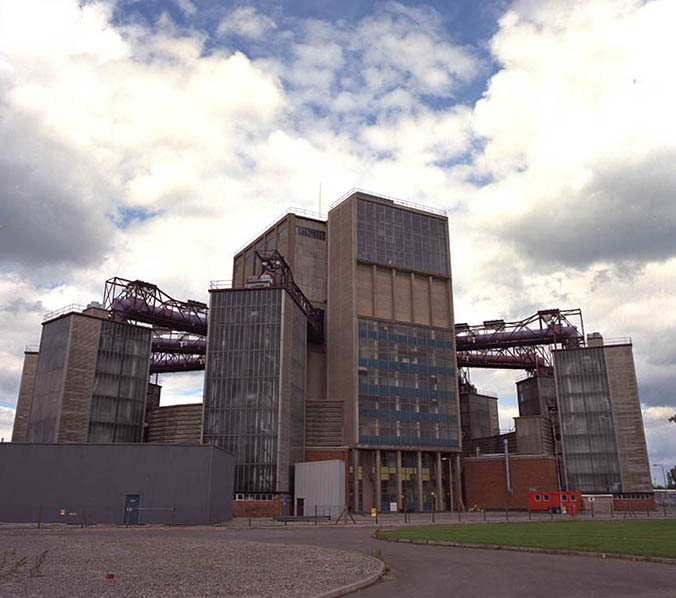

It’s a deception that has proven nearly impossible to overcome - a boon to plastic sales and waste alike. That’s no coincidence the plastics industry has slyly pushed this notion for years. “Everybody thinks that all plastics are recyclable,” said Community Conservation Centers general manager Jeff Belchamber during a recent tour of the site. All other plastics that Berkeley residents drop in their bins with the best of intentions - and there’s a lot of it - go straight to the landfill. Only number-one and -two bottles and jugs plastic beverage containers with California redemption values and, during a six-month trial, number-five plastic tubs, get recycled here. Inside, with few exceptions, is a plastic soup: single-use bags, flower pots, detergent jugs, frozen-dinner trays, prescription bottles. Most troubling of all are the contents of a nearby shipping container holding landfill-bound detritus that Berkeley can’t recycle. Within the materials recovery facility, known in industry parlance as a MRF (pronounced “merf”), plastic crowds the conveyors: water bottles, milk jugs, yogurt cartons, packaging of myriad shapes, sizes, and colors. A slumping pile ten feet tall of materials that came from Berkeley’s curbside recycling bins is comprised primarily of plastic. “Everybody thinks all plastics are recyclable,” said Community Conservation Centers general manager Jeff Belchamber during a recent tour of Berkeley’s materials recovery facility.īut there’s a sour note playing amidst this roaring ode to recycling: plastic.

At Waste Management’s Davis Street transfer station in San Leandro, a worker sifts through recyclables and refuse discarded by residents throughout the East Bay, including Oakland.

Garth Schultz, who manages El Cerrito’s drop-off facility, notes that residents in his city don’t have to worry about what is recyclable.All these plastics are headed for the landfill.Most plastics that Berkeley residents drop in their curbside bins go straight to the landfill.Here, in a transparent and low-tech process, the contents of the city’s recycling bins travel along conveyor belts where they’re picked off the line, largely by hand, and bundled for sale to commodities buyers. Others move recyclables in and out of the adjacent materials recovery facility, an open-face structure operated by fellow nonprofit Community Conservation Centers.
#BERKELEY TRANSFER STATION PORTABLE#
Seven days a week visitors come and go as they please, granted relative autonomy in doing the earth a good turn, never chaperoned or micromanaged by the powers that be, who are housed in a two-room portable office only a hundred feet away.Ĭollection trucks owned by the nonprofit Ecology Center rumble through the small lot, emptying their loads onto what’s known as the tipping floor. The Berkeley Recycling Center, where city trucks unload curbside recycling, residents discard used batteries and fluorescent bulbs, and freelance recyclers redeem cans for cash, seems a microcosm of utopian Berkeley society.


 0 kommentar(er)
0 kommentar(er)
